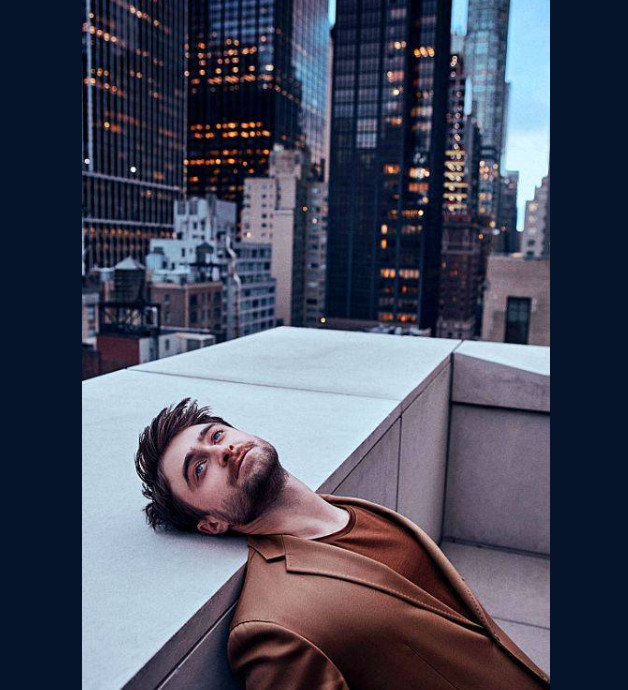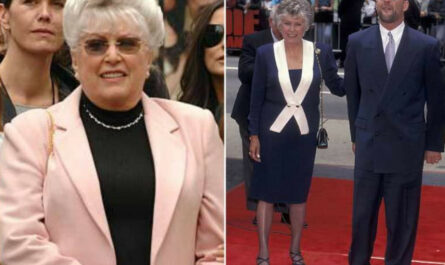In an era dominated by social media, where likes, shares, and followers often dictate one’s perceived value, it’s rare to find a celebrity who consciously chooses to eschew the digital spotlight. However, Daniel Radcliffe, best known for his iconic portrayal of the boy wizard Harry Potter, is one such individual. Despite his global fame and the immense popularity of the franchise that catapulted him to stardom, Radcliffe has steadfastly avoided the allure of social media platforms. In recent interviews, the actor has shed light on his reasons for steering clear of Twitter, Instagram, and the like, citing concerns over the negative online environment and the potential impact on his mental health. In this exploration, we delve into Daniel Radcliffe’s decision to abstain from social media, highlighting the importance of privacy and mental well-being in today’s hyperconnected world.
Negative Online Environment: One of the primary reasons cited by Daniel Radcliffe for his aversion to social media is the perceived toxicity of the online environment. In an age where digital discourse often descends into vitriol and polarization, Radcliffe expresses apprehension about exposing himself to the barrage of negativity that characterizes platforms like Twitter and Facebook. He fears being drawn into online arguments with strangers, where constructive dialogue is often overshadowed by hostility and animosity. By abstaining from social media, Radcliffe seeks to shield himself from the potential psychological toll of engaging with the darker aspects of online culture, preserving his mental well-being in the process.
Impact on Mental Health: In addition to concerns over the negative online environment, Daniel Radcliffe has been candid about the impact of social media on his mental health. Reflecting on his own experiences, the actor acknowledges that he has struggled in the past with reading negative comments about himself online. The relentless scrutiny and criticism inherent in social media can take a significant toll on one’s psyche, leading to feelings of inadequacy, anxiety, and depression. Radcliffe recognizes the danger of succumbing to the temptation to seek validation and approval from strangers on the internet, emphasizing the importance of prioritizing mental health over the fleeting dopamine hits of online validation.
Prioritizing Privacy: Beyond the concerns surrounding the toxicity of online discourse and its impact on mental health, Daniel Radcliffe’s decision to eschew social media also reflects a broader commitment to preserving his privacy. In an age of ubiquitous surveillance and relentless self-promotion, Radcliffe values the sanctuary of personal space and autonomy that comes with abstaining from social media. By maintaining a distance from the digital realm, he retains control over his public image and the boundaries of his personal life, safeguarding his privacy from the prying eyes of fans and the media alike.
Setting an Example: In choosing to forego social media, Daniel Radcliffe sets an example for fans and fellow celebrities alike, highlighting the importance of prioritizing mental health and privacy in an increasingly digitized world. His decision challenges the prevailing narrative that equates social media presence with success and validates the choice to opt out of the digital rat race in pursuit of greater well-being and authenticity. By embracing a digital detox, Radcliffe invites others to reassess their relationship with social media and consider the impact of constant connectivity on their mental and emotional health.
Conclusion: Daniel Radcliffe’s decision to abstain from social media may seem unconventional in an era where online presence is often equated with relevance and influence. However, his choice reflects a deep-seated commitment to preserving his mental health, privacy, and authenticity in an increasingly digitalized society. By prioritizing well-being over online validation and setting boundaries around his personal life, Radcliffe serves as a beacon of resilience and self-awareness in the face of digital saturation. As we navigate the complexities of the digital age, his example reminds us of the importance of disconnecting from the virtual world to reconnect with ourselves and the world around us.



